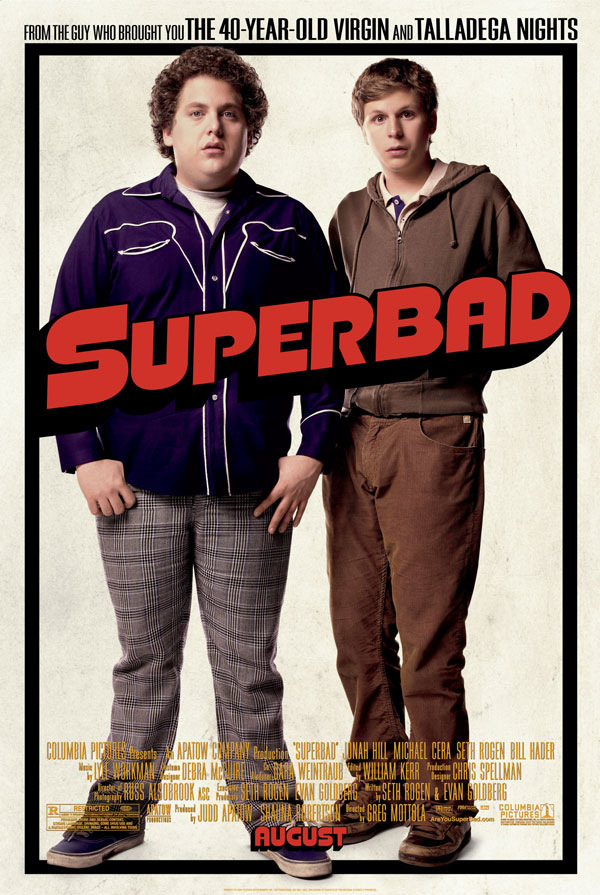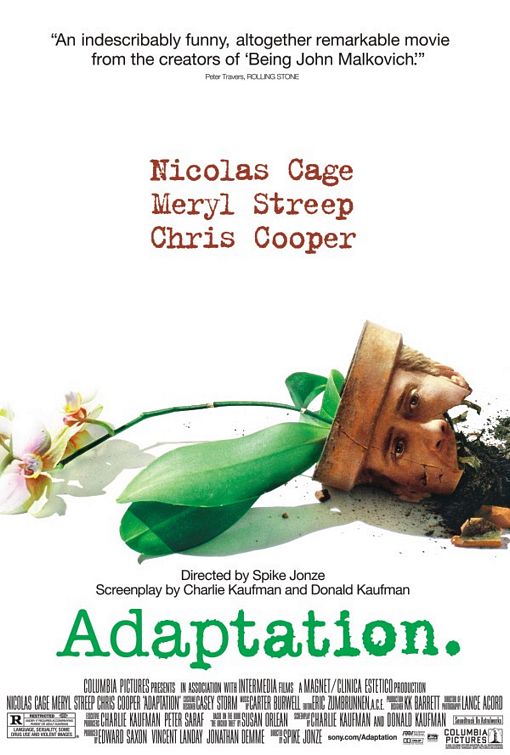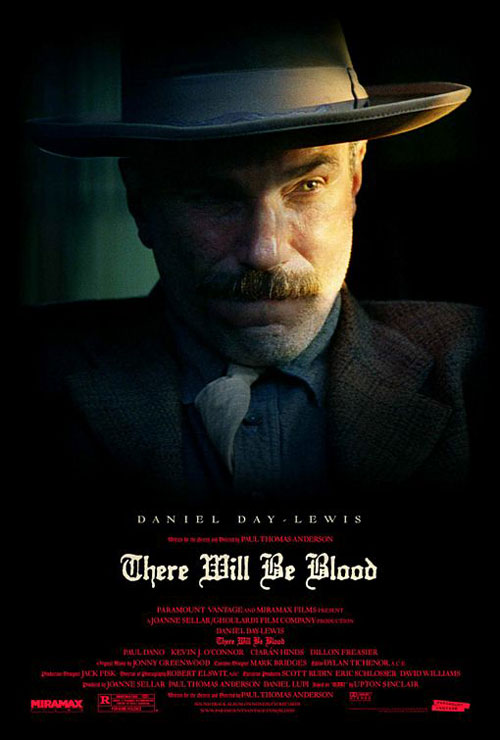TOP 7 Movies of the Decade (another opinion)
We start the Top 7. You finish the Top 10.
I have always struggled with the notion that perhaps movies, as a whole, are getting worse. As anyone who has seen what’s been playing for the past ten years will notice, there’s plenty of evidence to indicate that the brightness from the moving pictures is getting darker. Screenwriters and directors are sticking to formulas when hesitant to experiment with their creative juices, and at the same time, big studios are playing it safe by adapting anything in sight. But while many movies crowd up the marquee like a group of regular students with satisfying GPAs, cinema has still been able to continue thanks to true poindexters of the art, those who craft experiences so fulfilling and basically perfect that the deconstruction of “the movies” seems to still be a myth. With films like Talk to Her, Superbad, and There Will Be Blood, it appears this century old art form still has more to offer the world.
Complete Coverage of Top 7 Films of the Decade
Top 7 Films of the Decade by Jeff Bayer Top 7 Movies of the Decade by Nick Allen He Said - He Said ... Top 7 Films of the Decade
7. The Band's Visit (2007)
Recap: A foreign film from first-time director Eran Kolirin, it is introduced wisely by this text at the beginning: “Once, not long ago, a small Egyptian police band arrived in Israel. Not many remember this, it was not that important.” Reason: Simplicity is the key here, as this winsome film is able to maintain such a calm state of mind without losing grip of its audience. The movie could not be anymore simple than those opening two sentences, but considering the tone of which the story is delivered, along with the graceful subtleties offered by each and every main performance, there is something bigger at hand. Also, The Band's Visit has some spectacular moments in camera framing, as the blue-Smurf suits of the Egyptian police band are contrasted with the magnificent emptiness of the Israeli desert. Simple human beings are expertly created, and are explained just enough so that we may understand why the little things we do for one another can be the most important.
 6. Superbad (2007)
6. Superbad (2007)
Recap: Three high school senior boys (Jonah Hill, Michael Cera, Christopher Mintz-Plasse) on the brink of manhood try to obtain alcohol so that they can increase their chances of having a sexual experience. Reason: The nerds got their revenge again when Superbad rolled into theatres, busting guts across the country and hitting funny bones harder than the super-laughable Borat back in October of ’06. The best movie that Apatow has been associated with so far, this incredibly honest ode to being a high school dork who's trying to be cool has more quotable lines than 40 Year Old Virgin and Pineapple Express combined, and its humor is effortless. Cera, Hill, and Plasse are hilarious as the three crude young gentlemen whose awkward experiences are as hilarious as they are embarrassingly real. The “slacker” comedy has certainly seen boys try to get some before, but it has never earned this many laughs.
5. The Lives of Others (2006)
Recap: A spy (Ulrich Muhe) bugs the apartment of a playwright in Germany before the collapse of the Berlin Wall. Winner of Best Foreign Film is 2007, beating the popular Pan's Labyrinth at the time. Reason: This is the most significant story about surveillance since Coppola's The Conversation, but newcomer Florian Henckel Von Donnersmarck takes the human element of spying to a level that is even more gripping. To put it easily, this is excellent storytelling. The late Ulrich Muhe's character is fascinating, especially when he starts to disregard his honor and asserted skill for the protection of those he was originally hired to condemn. Transfixing from start to finish, this is one of the more intense human thrillers that world cinema has ever seen.
 4. Adaptation (2005)
4. Adaptation (2005)
Recap: A screenwriter (Nicolas Cage) who is struggling to make a film adaptation of a book about plants goes to his more brilliant, less artistic twin brother (also Cage) for help. Reason: This is one of the best movies of the decade because of what it says about the art that literally creates “the movies” – screenwriting. And it’s the best script from Charlie Kaufman (more than Eternal Sunshine of the Spotless Mind, yes), because of how brilliantly it takes the metafilm concept beyond its cutesy simplicity. Many people have written a story about writing, including one concocted by a “tortured artist,” but this the imagination of Adaptation takes it above a tongue-in-cheek film school student's concept. Nicolas Cage also delivers a career-high performance as the Kaufman, in one of those rare Cagemaster miracles roles that questions how the same human being could also do something for his career like Bangkok Dangerous and Next. I guess that’s just how Hollywood works.
3. The Dark Knight (2008)
Recap: The second film from Christopher Nolan's reboot of the famous comic book character, it follows caped crusader Batman (Christian Bale) as he fights to stop the terrorism unleashed by mastermind The Joker (Heath Ledger) while eventually becoming a villain himself. Reason: Good ol’ Peter Parker proved with Spider-Man 2 that superhero movies could speak beyond their boxed imaginations. Having said that, The Dark Knight showed that crime-fighting dudes in costume can speak about the world as it is today, while being crafted with a power that exceeds those felt in even the most revered of Oscar winners. Regardless of its abandonment by the Academy, The Dark Knight earned every dollar of its near billion-dollar take-in. It not only fully resurrected the legendary character of Batman (as if Batman Begins wasn’t good enough), but it gave him a dark pulse, one that ran non-stop in a brilliant set of actions for an entire movie. Writer/director Christopher Nolan’s film is incredible entertainment for fans of movies and Batman alike. It sucked its viewers in with a brilliant opening sequence (hell, even the first flying shot was enough), and then delivered what turned out to be the best action of the decade. Following the steps of Spider-Man, it led the way for darker vigilante characters like Rorschach, etc so that graphic novel characters can seem like more than just fast food toys with a movie tie-in.
2. Talk To Her (2002)
Recap: Marco (Dario Grandinetti) cares for his bullfighting girlfriend who has been knocked into a coma. Benigno (Javier Camara) is looking after a different woman in a coma - a ballerina he has become obsessed with. Reason: The almighty Pedro Almoldovar writes at a dramatic level equal to masters like Ingmar Bergman with this stunning film that could be described simply as a different tale of love. Talk To Her is the rare kind of artwork that will stick with you for a lifetime, especially if you've ever loved someone, no matter what the circumstance. In 2005, he almost repeated this movie's brilliance with Volver, but just missed. Almoldovar shows with that film and especially Talk To Her that he sees a human being's love for someone else in a wholly unique way. He certainly has a special control of mood, and an ability to tell an incredible story that is very rare in today's cinematic climate.
 1. There Will Be Blood (2007)
1. There Will Be Blood (2007)
Recap: P.T Anderson’s American epic (which borrows bits and pieces from Upton Sinclair’s novel “OIL!”) revolves around the oil rush of the early 1900’s. However, the black liquid takes a backseat to the main focus of the movie: Daniel Plainview, the manipulative tycoon played by the almighty Daniel Day-Lewis. Interwoven with Plainview’s avarice is a religious element, brought by a young evangelist (Paul Dano). Packed into one hell of a 160-minute cinematic experience, There Will Be Blood is a thick film that explores themes of religion, power and greed. Reason: When films like Frost/Nixon are reduced from Oscar nominees to rare golden gems scoured after by film nerds at DVD stores thirty years from now, the one picture that must remain timeless is Paul Thomas Anderson’s masterpiece, There Will Be Blood. The film’s only imperfection is that it’s more of a reflection that classic filmmaking can exist in today’s cinema, as opposed to being a step into the future of truly brilliant moviemaking. Still, There Will Be Blood can’t be slighted for wanting to aesthetically stand up with the greats. Daniel Day Lewis is monumental with his embodiment of the fascinating character Daniel Plainview, a complicated psychopath. He anchors the brilliance of the film, and also brings a great share of the film’s magnetism. P.T Anderson’s camera, ever so gorgeous, is given its best moments when capturing the monstrosity that is an oil derrick (especially when it’s on fire). The soundtrack by Radiohead’s Jonny Greenwood, as unlikely it would seem to fit with a period piece, plays brilliantly to the film’s most horrific moments, with chaotic strings matching this story's madness about capitalism and religion attempting to reach a certain harmony. Considering that theme, this movie does have a lot of modern importance, but as a whole, There Will Be Blood should stay relevant as it is the most magnificent film of the last ten years.